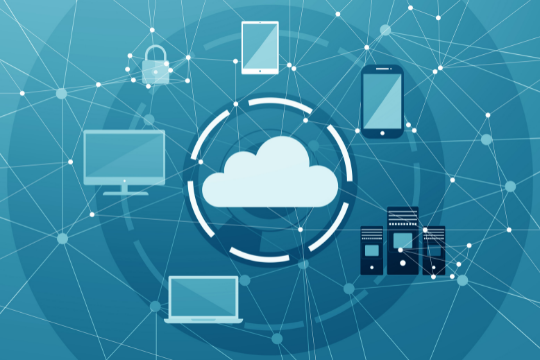 The cloud computing vs distributed computing debate has been ongoing, and although there are similarities between the two, there are also important differences, with each one offering vital benefits to businesses and companies.
The cloud computing vs distributed computing debate has been ongoing, and although there are similarities between the two, there are also important differences, with each one offering vital benefits to businesses and companies.
How is Distributed Cloud Different Than Cloud Computing
What is distributed cloud? What is cloud computing? It sounds similar, but it’s different.
Distributed cloud is a “cloud” or a high-capacity virtualized environment, which is spread over multiple geographically dispersed locations. It carries the same benefits of cloud computing to medium and small businesses as offered by large companies. What makes it similar to traditional cloud computing service providers such as Amazon EC2 and Google AppEngine is the fact that the end-users do not need to worry about any technical details related to cloud storage. Distributed cloud providers perform all the necessary tasks on their own, including hosting, optimizing hardware components, and managing software updates. Distributed cloud computing service providers provide online storage for virtual desktop images, large media files like videos and music, backups, archiving, and so on.
On the other hand, cloud computing is a deployment model for IT services, where the shared resources, software, and information are provided to computers and other devices on-demand. Cloud computing requires users to have access to a network connection in order to get an Internet-based service.
Cloud computing is different from distributed cloud because the former refers to the sharing of IT resources, while the latter is about geographically dispersed resources. Cloud computing has emerged as a new resource planning and delivery model which promises to simplify IT service management by enabling ubiquitous access to shared pools of configurable system resources and applications in real-time. Meanwhile, distributed computing is a type of parallel computing in which complex problems are broken into smaller tasks that can be computed simultaneously.
The Advantages and Disadvantages For Both
Distributed cloud is cheaper than traditional cloud because it has lower bandwidth requirements and single point of failure risks. Cloud computing is suitable for companies that need to scale up their website/app easily and frequently due to traffic requirements or unpredictable workloads. Cloud storage providers provide massive data storage at a lower cost than traditional hosting services. Distributed cloud has high availability, resilience, and less network latency than traditional cloud service providers.
Distributed cloud allows businesses to utilize computing resources in small chunks when needed. For example, when the user uploads a file, he/she can use only 100MB initially and pay for what they actually use. Such cloud service providers provide access to all applications based on distributed computing technologies.
What makes cloud computing expensive are its latency, bandwidth requirements, and single point of failure risks, but these drawbacks are eliminated in distributed cloud as users get on-demand access to the same infrastructure without any risk involved.
Distributed cloud offers increased security and reduced latency. It also does not rely on a single physical location and offers high availability of resources, which makes it appropriate for disaster recovery scenarios.
The biggest disadvantage of distributed cloud is that it may limit functionality due to its restricted infrastructure. Moreover, distributed computing requires the selected servers to be compatible with each other in order to distribute workloads.
Cloud computing is advantageous for companies that have a need to scale up easily and frequently due to traffic requirements or unpredictable workloads, as it offers dynamic scalability.
Cloud storage providers provide massive data storage capacity at a lower cost than traditional hosting services, making it more reliable and affordable for businesses. The best thing about cloud-computing service providers is that they allow users to purchase server storage on-demand, making it suitable for small and medium-sized businesses.
Why Businesses Should Choose Distributed Cloud or Cloud Computing
If you are a small business owner and need to make an important decision whether to use distributed cloud or cloud-computing service, there is no denying that both services offer several benefits. While cloud computing allows users to store and access their documents online, distributed cloud offers data storage capacity at a lower cost than traditional hosting services. If you have a business that needs to scale up quickly or works with new customers every day, cloud computing is your best bet as it offers dynamic scalability.
However, if your business requires more stability and security of data, distributed cloud is the better choice as users can get on-demand access to the same infrastructure and can distribute workloads. Due to the fact that distributed cloud does not rely on a single physical location, it is suitable for disaster recovery scenarios.
Both distributed cloud and cloud-computing services are important in today’s world, but it mostly depends on your business needs. If you need to scale up quickly or work with new customers every day, cloud computing is the best option for you. If your business requires more stability and security of data, distributed cloud offers better performance and security. It can be tricky to know which one to choose, only you can answer that question by having an in-depth understanding of your business’ needs.
Sunvera Software develops next-level software applications from start-to-finish. We are a premier software and mobile app development agency specializing in healthcare mobile app development, custom mobile app development, telehealth software, sales dashboards, custom mobile app development services, retail software development, supply-chain software, ecommerce, shopify, web design, iBeacon apps, security solutions and unified access software.
We are proud partners with Amazon AWS, Microsoft Azure and Google Cloud.
Schedule a free 30-minute call with us to discuss your business, or you can give us a call at (949) 284-6300.

